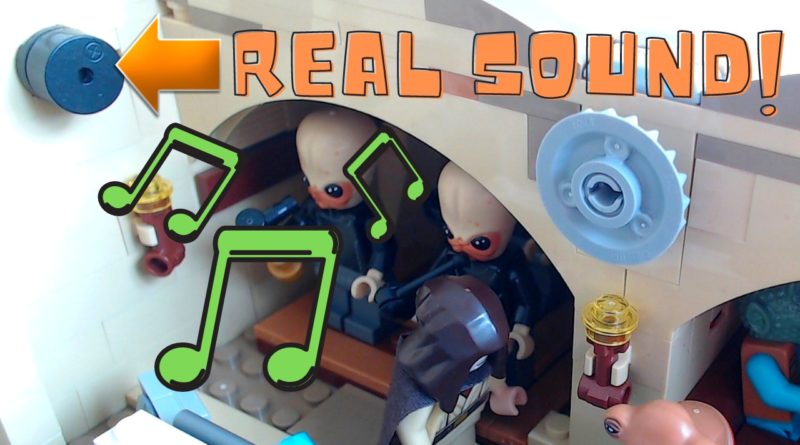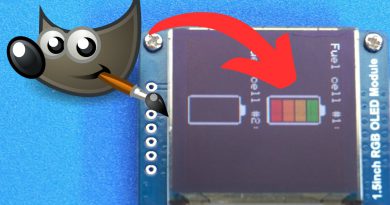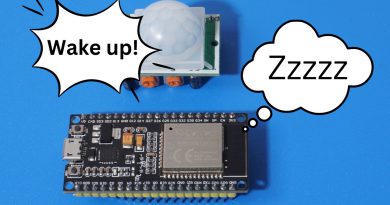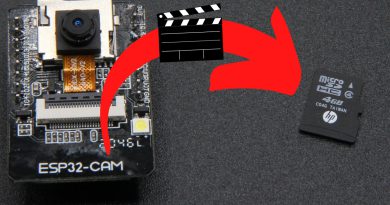Lego Cantina Plays The Cantina Music ???
The Lego Mos Eisley Cantina 75290 is an incredible Lego set but soon after I had completed it I realised something was missing… that famous music played by Figrin D’an and the Modal Nodes.
After much searching online I found out a way to play music on an Arduino Uno using a simple piezo buzzer as a speaker. Check it out in my video below:
Here’s a very simple tutorial for playing tunes through a piezo buzzer.
Of course that tune is such an earworm that I couldn’t risk playing it all day. So I hooked up my Arduino to an HC-SR04 ultrasonic sensor. This measures distance so I set it to activate the music and the lights in the Cantina when somebody comes within 30 cm of the display set. Here’s a tutorial on how to wire up an HC-SR04.
I found playing a specific tune to be quite difficult on the Arduino. There don’t appear to be any really good ways of converting an MP3 file to play on a piezo buzzer. There is a PCM Arduino library but converting MP3 files to PCM files isn’t apparently straightforward either.
So I looked into transcribing the song from sheet music. Unfortunately I can’t read music so this was a non-starter. Instead I was fortunate to find a transcription of the song’s notes into musical notes.
I still need to fine tune the song’s timing and there are a few duff notes, but I’m really pleased with the result.
If you have any questions then leave a comment below or on the video’s Youtube page and remember to subscribe for more coding tutorials.
Source Code – Motion Activated Cantina with Lights & Sound
/*
Connect a piezo buzzer or speaker to pin 11 or select a new pin.
More songs available at https://github.com/robsoncouto/arduino-songs
Robson Couto, 2019
*/
#define LED1 10
#define LED2 11
#define echoPin 2 // attach pin D2 Arduino to pin Echo of HC-SR04
#define trigPin 3 //attach pin D3 Arduino to pin Trig of HC-SR04
// defines variables
long duration; // variable for the duration of sound wave travel
int distance; // variable for the distance measurement
#define NOTE_B0 31
#define NOTE_C1 33
#define NOTE_CS1 35
#define NOTE_D1 37
#define NOTE_DS1 39
#define NOTE_E1 41
#define NOTE_F1 44
#define NOTE_FS1 46
#define NOTE_G1 49
#define NOTE_GS1 52
#define NOTE_A1 55
#define NOTE_AS1 58
#define NOTE_B1 62
#define NOTE_C2 65
#define NOTE_CS2 69
#define NOTE_D2 73
#define NOTE_DS2 78
#define NOTE_E2 82
#define NOTE_F2 87
#define NOTE_FS2 93
#define NOTE_G2 98
#define NOTE_GS2 104
#define NOTE_A2 110
#define NOTE_AS2 117
#define NOTE_B2 123
#define NOTE_C3 131
#define NOTE_CS3 139
#define NOTE_D3 147
#define NOTE_DS3 156
#define NOTE_E3 165
#define NOTE_F3 175
#define NOTE_FS3 185
#define NOTE_G3 196
#define NOTE_GS3 208
#define NOTE_A3 220
#define NOTE_AS3 233
#define NOTE_B3 247
#define NOTE_C4 262
#define NOTE_CS4 277
#define NOTE_D4 294
#define NOTE_DS4 311
#define NOTE_E4 330
#define NOTE_F4 349
#define NOTE_FS4 370
#define NOTE_G4 392
#define NOTE_GS4 415
#define NOTE_A4 440
#define NOTE_AS4 466
#define NOTE_B4 494
#define NOTE_C5 523
#define NOTE_CS5 554
#define NOTE_D5 587
#define NOTE_DS5 622
#define NOTE_E5 659
#define NOTE_F5 698
#define NOTE_FS5 740
#define NOTE_G5 784
#define NOTE_GS5 831
#define NOTE_A5 880
#define NOTE_AS5 932
#define NOTE_B5 988
#define NOTE_C6 1047
#define NOTE_CS6 1109
#define NOTE_D6 1175
#define NOTE_DS6 1245
#define NOTE_E6 1319
#define NOTE_F6 1397
#define NOTE_FS6 1480
#define NOTE_G6 1568
#define NOTE_GS6 1661
#define NOTE_A6 1760
#define NOTE_AS6 1865
#define NOTE_B6 1976
#define NOTE_C7 2093
#define NOTE_CS7 2217
#define NOTE_D7 2349
#define NOTE_DS7 2489
#define NOTE_E7 2637
#define NOTE_F7 2794
#define NOTE_FS7 2960
#define NOTE_G7 3136
#define NOTE_GS7 3322
#define NOTE_A7 3520
#define NOTE_AS7 3729
#define NOTE_B7 3951
#define NOTE_C8 4186
#define NOTE_CS8 4435
#define NOTE_D8 4699
#define NOTE_DS8 4978
#define REST 0
// change tempo to make the song slower or faster
int tempo1 = 140;
//int tempo2 = 180;
//int tempo3 = 140;
// change this to whichever pin you want to use
int buzzer = 8;
// notes of the moledy followed by the duration.
// a 4 means a quarter note, 8 an eighteenth , 16 sixteenth, so on
// !!negative numbers are used to represent dotted notes,
// so -4 means a dotted quarter note, that is, a quarter plus an eighteenth!!
int melody1[] = {
NOTE_A6,4, NOTE_D6,4, NOTE_A6,4, NOTE_D6,4,NOTE_A6,4, NOTE_D6,4,NOTE_A6,4,
NOTE_GS6,8, NOTE_A6,4, NOTE_A6,8, NOTE_GS6,8, NOTE_A6,8, NOTE_G6,4, NOTE_FS6,8, NOTE_G6,4, NOTE_F6,4,
NOTE_D6,4, NOTE_A6,4, NOTE_D6,4, NOTE_A6,4, NOTE_D6,4,
NOTE_A6,4, NOTE_D6,4, NOTE_A6,4, NOTE_GS6,8, NOTE_A6,4, NOTE_G6,4, NOTE_G6,4,
NOTE_FS6,8, NOTE_G6,4, NOTE_C6,8, NOTE_AS6,8, NOTE_A6,4, NOTE_G6,4, NOTE_A6,4,
NOTE_D6,4, NOTE_A6,4, NOTE_D6,4, NOTE_A6,8, NOTE_D6,4, NOTE_A6,4, NOTE_GS6,4,
NOTE_A6,8, NOTE_C6,4, NOTE_C6,4, NOTE_A6,8, NOTE_G6,4, NOTE_F6,4,
NOTE_D6,4, NOTE_D6,4, NOTE_F6,4,
NOTE_A6,4, NOTE_C6,4, NOTE_DS6,4, NOTE_D6,8, NOTE_G6,8,
NOTE_A6,4, NOTE_F6,2, NOTE_A6,4,
NOTE_F6,8, NOTE_A6,4, NOTE_A6,4, NOTE_F6,8, NOTE_A6,4,
NOTE_A6,8, NOTE_F6,4, NOTE_GS6,8, NOTE_A6,8, NOTE_F6,4, NOTE_D6,2,
NOTE_A6,4, NOTE_F6,8, NOTE_A6,2,
NOTE_A6,4, NOTE_F6,8, NOTE_A6,2, NOTE_A6,4, NOTE_F6,8, NOTE_GS6,8, NOTE_A6,8,
NOTE_G6,4, NOTE_C6,4, NOTE_A6,4,
NOTE_F6,8, NOTE_A6,4, NOTE_A6,4, NOTE_F6,8, NOTE_A6,4,
NOTE_A6,8, NOTE_F6,4, NOTE_GS6,8, NOTE_A6,4, NOTE_F6,4, NOTE_D6,4,
NOTE_AS6,8, NOTE_D6,8, NOTE_F6,8, NOTE_B6,8, NOTE_D6,8, NOTE_F6,4, NOTE_GS6,8, NOTE_A6,4,
NOTE_D6,4, NOTE_D6,8, NOTE_F6,8, NOTE_B6,8, NOTE_D6,8, NOTE_GS6,8, NOTE_A6,4,
NOTE_F6,8, NOTE_F6,2, NOTE_F6,4, NOTE_GS6,4,
NOTE_F6,8, NOTE_G6,4, NOTE_F6,8, NOTE_GS6,8, NOTE_F6,8, NOTE_G6,8, NOTE_F6,8, NOTE_GS6,8, NOTE_F6,8, NOTE_F6,4,
NOTE_GS6,4, NOTE_F6,8, NOTE_G6,4, NOTE_F6,8, NOTE_GS6,4, NOTE_F6,8, NOTE_G6,8, NOTE_F6,8,
NOTE_GS6,8, NOTE_F6,8, NOTE_F6,4, NOTE_G6,4, NOTE_F6,8, NOTE_G6,4, NOTE_F6,8, NOTE_GS6,8,
NOTE_F6,8, NOTE_G6,8, NOTE_F6,8, NOTE_G6,8, NOTE_F6,8, NOTE_F6,8, NOTE_F6,8, NOTE_GS6,8, NOTE_F6,8, NOTE_G6,4, NOTE_F6,8, NOTE_GS6,8, NOTE_F6,8,
NOTE_G6,8, NOTE_F6,8, NOTE_GS6,8, NOTE_F6,8, NOTE_G6,8, NOTE_F6,4, NOTE_GS6,8, NOTE_F6,2, NOTE_D6,2,
NOTE_C6,2,
NOTE_D6,2, NOTE_C6,2,
NOTE_D6,2,
NOTE_CS6,2, NOTE_D6,8, NOTE_D6,8, NOTE_D6,8, NOTE_D6,2,
NOTE_A6,8, NOTE_D6,8, NOTE_A6,8,
NOTE_D6,8, NOTE_A6,8, NOTE_D6,8, NOTE_A6,8, NOTE_GS6,8, NOTE_A6,8, NOTE_A6,8, NOTE_GS6,8, NOTE_A6,8,
NOTE_G6,8, NOTE_FS6,8, NOTE_G6,8, NOTE_F6,4, NOTE_D6,2,
NOTE_A6,8, NOTE_D6,8, NOTE_A6,8, NOTE_D6,8, NOTE_A6,8, NOTE_D6,8, NOTE_A6,8,
NOTE_GS6,8, NOTE_A6,8, NOTE_G6,8, NOTE_G6,8, NOTE_FS6,8, NOTE_G6,4, NOTE_AS6,8,
NOTE_A6,8, NOTE_G6,8, NOTE_A6,8, NOTE_D6,8, NOTE_A6,8, NOTE_D6,8,
NOTE_A6,8, NOTE_D6,8, NOTE_A6,8, NOTE_GS6,8, NOTE_A6,8, NOTE_C6,8, NOTE_C6,8,
NOTE_A6,8, NOTE_G6,8, NOTE_F6,4, NOTE_D6,4, NOTE_D6,4,
NOTE_F6,4, NOTE_A6,8, NOTE_C6,4,
NOTE_DS6,8, NOTE_D6,8, NOTE_GS6,8, NOTE_A6,8, NOTE_F6,2,
};
// sizeof gives the number of bytes, each int value is composed of two bytes (16 bits)
// there are two values per note (pitch and duration), so for each note there are four bytes
int notes1 = sizeof(melody1) / sizeof(melody1[0]) / 2;
// this calculates the duration of a whole note in ms
int wholenote1 = (60000 * 4) / tempo1;
//int wholenote2 = (60000 * 4) / tempo2;
//int wholenote3 = (60000 * 4) / tempo3;
int divider = 0, noteDuration = 0;
void setup() {
pinMode(trigPin, OUTPUT);
pinMode(echoPin, INPUT);
pinMode(LED1, OUTPUT);
pinMode(LED2, OUTPUT);
Serial.begin(9600);
}
void loop(){
// Clears the trigPin condition
digitalWrite(trigPin, LOW);
delayMicroseconds(2);
// Sets the trigPin HIGH (ACTIVE) for 10 microseconds
digitalWrite(trigPin, HIGH);
delayMicroseconds(10);
digitalWrite(trigPin, LOW);
// Reads the echoPin, returns the sound wave travel time in microseconds
duration = pulseIn(echoPin, HIGH);
// Calculating the distance
distance = duration * 0.034 / 2; // Speed of sound wave divided by 2 (go and back)
Serial.print(“Distance: “);
Serial.print(distance);
Serial.println(” cm”);
if (distance > 10 && distance < 20) {
digitalWrite(LED1, HIGH);
digitalWrite(LED2, HIGH);
playMusic();
digitalWrite(LED1, LOW);
digitalWrite(LED2, LOW);
}
}
void playMusic() {
for (int thisNote = 0; thisNote < notes1 * 2; thisNote = thisNote + 2) {
// calculates the duration of each note
divider = melody1[thisNote + 1];
if (divider > 0) {
// regular note, just proceed
noteDuration = (wholenote1) / divider;
} else if (divider < 0) {
// dotted notes are represented with negative durations!!
noteDuration = (wholenote1) / abs(divider);
noteDuration *= 1.5; // increases the duration in half for dotted notes
}
// we only play the note for 90% of the duration, leaving 10% as a pause
tone(buzzer, melody1[thisNote], noteDuration * 0.9);
// Wait for the specief duration before playing the next note.
delay(noteDuration);
// stop the waveform generation before the next note.
noTone(buzzer);
}
}



